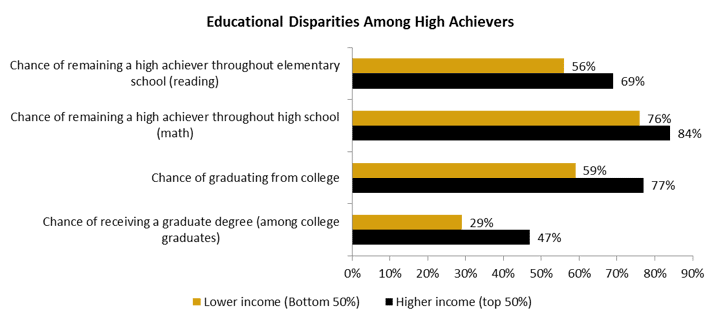JKCF Executive Director Discusses Excellence Gap with CBS Baltimore
As exciting as it is to go back to school, students from low-income families may not have the same opportunities to learn as their wealthier peers. Due to current education policies, these students are often ignored for accelerated learning options and academic support.
The Cooke Foundation is committed to closing this Excellence Gap. Executive Director Harold O. Levy discussed the issue over the weekend with CBS Baltimore’s Marcus Washington.
In the interview, Mr. Levy explains that low-income students who begin school as high-achievers are less likely to retain that performance as they advance through higher grades. An additional problem is the “great disparity in the number of kids who test as high-performing between the wealthy kids … and the low-income kids. There’s a reason for that, and we need to address it.”
“A lot of these things don’t actually require more money. It’s just a matter of changing policies, tweaking them all around,” states Levy. Students who are socially and intellectually capable of skipping a grade should be able to do so. “Right now in a lot of states, we don’t permit it, we don’t encourage it; indeed in some states, it’s actually illegal to allow a kid in high school to take a college course.”
A recent policy brief published by the IEA confirms that despite efforts to raise the minimum gaps in proficiency among students of various socioeconomic backgrounds, these programs do “little for the students, their families and their communities if they never reach the levels of achievement they have the potential to realize.”
Other education policy experts agree. Speaking with NPR’s Anya Kamenetz, Chester E. Finn summarizes the situation: “High achievers are being neglected in all sort of ways by schools that had no incentive to push them farther up.”
“They get bored!” As Mr. Levy elaborates, “These kids are often very fragile and if they’re not cultivated, they check out.”
Students who do go on to begin college without support and acknowledgement of their challenges often feel like imposters and drop out as a result.
“The idea is education is the way out. Education allows you to really soar, and we ought to encourage that.”
For more on the Excellence Gap, visit ExcellenceGap.org for infographics, state report cards, and other resources. You may also read the Cooke Foundation’s “Equal Talents, Unequal Opportunities” report.
The full episode of On Time is available for streaming at CBS Baltimore.![]()
